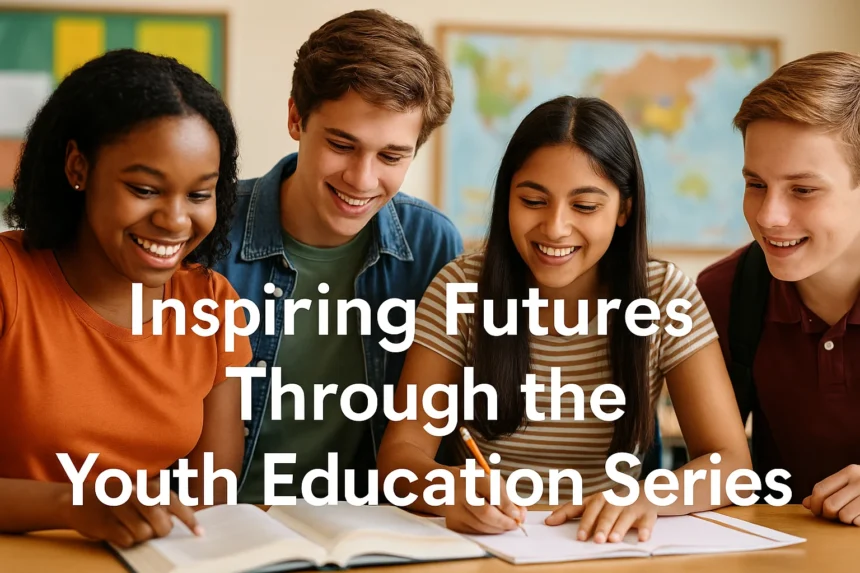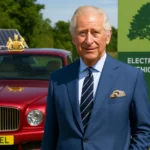A Story of Dreams and Discovery
When sixteen-year-old Maya first stepped into the bright, buzzing classroom of her local community centre, she wasn’t sure what to expect. The room was filled with students like her, curious, hopeful, and unsure of where their future might lead. As the instructor began the first session of the youth education series, Maya felt a spark she hadn’t felt in a long time. The lessons weren’t about memorizing facts or passing tests; they were about discovering purpose. Through projects, discussions, and mentorship, Maya learned not just about the world but about herself.
This story is more than just Maya’s; it’s a glimpse into how the right kind of learning can transform lives. Across the world, programs like these are helping young people unlock potential, foster creativity, and build the confidence needed to face tomorrow’s challenges.
Understanding the Need for Modern Youth Education
The world today is evolving at a breathtaking pace. Technology, innovation, and global connectivity have changed not just how we live, but also how we learn. Traditional education often struggles to keep up, focusing heavily on academic outcomes rather than life skills. Young people need more than just knowledge; they need guidance, adaptability, and the courage to lead.
This is where specialized programs, such as the youth education series, come into play. These initiatives are designed to bridge the gap between academic learning and real-world experience. They empower students to think critically, collaborate effectively, and explore diverse fields from technology and entrepreneurship to environmental awareness and civic engagement.
Core Values Shaping the Learning Experience
Encouraging Curiosity and Innovation
Curiosity is the seed of innovation; by encouraging students to ask “why” and “how,” educators create lifelong learners. Each learner’s curiosity develops differently, influenced by their personality and cognitive style. Programs focusing on exploration rather than rote learning ignite imagination and drive self-discovery. When curiosity becomes the classroom’s foundation, students are inspired to challenge conventions and think independently.
Building Leadership and Teamwork Skills
Team projects and group discussions teach students how to lead and collaborate. They learn that leadership isn’t about authority, it’s about empathy, communication, and shared vision. These skills prepare them to navigate diverse workplaces and contribute meaningfully to their communities.
Fostering Emotional Intelligence and Resilience
Emotional intelligence (EQ) is increasingly recognized as vital for personal and professional success. When young learners are taught to understand emotions, handle stress, and practice empathy, they become more resilient and adaptable. Such attributes are essential for thriving in unpredictable environments.
Integrating Technology for Smarter Learning
Technology is more than a tool; it’s a bridge between imagination and execution. Interactive platforms, digital storytelling, and gamified lessons make education engaging and accessible. Virtual classrooms allow learners from remote areas to connect globally, while artificial intelligence can personalize content based on learning styles.
Incorporating these advancements ensures that education remains relevant, dynamic, and inclusive. Rather than replacing traditional teaching, technology enhances it, allowing teachers to focus on mentorship and creativity.
Empowering Educators to Inspire Change
Teachers are the backbone of every educational movement. To deliver impactful programs, educators must be empowered through training, resources, and emotional support. When teachers feel valued, their enthusiasm radiates to students.
Workshops, peer learning groups, and mentorship programs help educators stay current with new teaching strategies. By nurturing both student and teacher growth, the youth education series becomes a model of holistic learning where inspiration flows in both directions.
Encouraging Global Awareness and Social Responsibility
Today’s youth will inherit a world that demands compassion, sustainability, and global cooperation. Educational series focusing on youth must instil a sense of responsibility toward society and the planet.
Students engaged in community service projects, environmental campaigns, or cultural exchanges gain perspective on real-world challenges. They learn to act not just for personal success but for collective well-being, an essential mindset for the future.
Overcoming Challenges in Youth-Centred Education
Bridging the Opportunity Gap
Not all students have access to quality learning environments. Socioeconomic disparities, lack of infrastructure, and limited digital access create barriers. To overcome this, educational initiatives must be inclusive, offering scholarships, mentorships, and outreach programs that reach underprivileged communities.
Balancing Academics and Creativity
Education often leans heavily toward academic achievement, leaving little room for creativity. By integrating arts, sports, and innovation labs, schools can nurture balanced development. When creativity and knowledge coexist, learning becomes joyful rather than burdensome.
The Long-Term Impact on Youth Development
Programs centred on youth education contribute to shaping global citizens who think critically, act ethically, and lead courageously. Over time, this approach cultivates innovators, entrepreneurs, and changemakers who apply the real-world applications of education to influence not just their own lives but society at large.
When education prioritises values, skills, and adaptability, it creates a ripple effect that transforms families, communities, and nations. The seeds planted in one classroom can grow into forests of progress for generations to come.
Conclusion: Shaping Tomorrow, One Learner at a Time
The future belongs to those who dare to learn differently. By embracing creativity, compassion, and collaboration, educational programs can light the path for young minds. The youth education series stands as a testament to what’s possible when education moves beyond textbooks and test scores, when it becomes a journey of purpose, empowerment, and transformation.
In the hands of passionate educators and motivated learners, the power of education becomes limitless. Through such programs, we can nurture a generation ready not just to face the future but to shape it.




